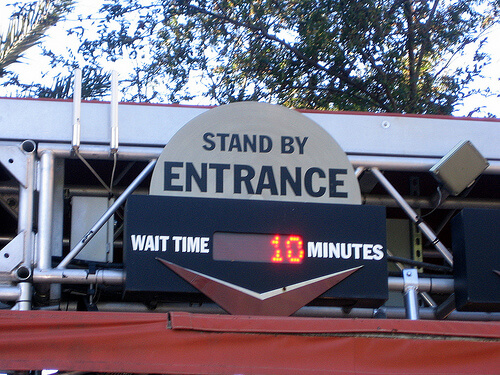
from him comes my salvation.
He alone is my rock and my salvation,
my fortress; I shall never be shaken.
Psalm 62:1-2
Life is filled with waiting. There is waiting at the supermarket checkout line, the doctor’s office, the airport terminal, and rush hour traffic. There is waiting for the bus, for car repair, for the check that’s in the mail, and the late appointment. Even in our “I want it now!” world of fast food, microwaves, and jet aircraft, we seem to always be waiting for something. We even have special rooms we designate as waiting rooms where we take a number and wait for someone or something. As we wait, it often feels like life is put on hold and time slams to a stop.
Then there is the whole other dimension of waiting that is waiting for a biopsy report, waiting for a job, waiting for Mr. Right, waiting for the prodigal, and waiting for God. It is here that we are fortunate that the Book of Psalms understands us, and even has its own specialized vocabulary for waiting.
As a first year Hebrew student, I was befuddled by the several Hebrew words in the Psalms that could only be translated by our one paltry word, “wait”. It seems that the psalmists were virtuosos in waiting. They had more patience and insight for exploring the many nuances of waiting, especially waiting for God. Thus the psalmists used different words to describe their waiting for God. They wrote of waiting patiently for God, waiting hopefully, waiting expectantly, and waiting long. Just as the Eskimos who live in snow have many words for snow, so the psalmists who lived waiting for God had many words to describe their waiting for Him. To the core of their being, the psalmists believed that of all the persons or things worth waiting for, it was God.
In today’s text, the psalmist David, a proven expert in all matters of waiting, writes of his waiting for God “in silence”. David shows up at God’s doorstep and doesn’t say a word. Here David speaks of a kind of prayer where people come to God without words and to simply let themselves be with Him. This kind of praying can be hard for us who put so much emphasis on activity and on what we do for God. We tend to want to take matters in our own hands, rather than to wait in silence for God.
I am a wordy person (just look at how I ramble on!), but still words often fail me, or I run out of words. It took me years to learn that I didn’t always have to be talking to be praying. It happened at a time that I was so confused and hurting that I didn’t know what to say to God. I just didn’t have the words. So I wearily offered myself to Him and asked if I could just be silent with Him. I learned then a place beyond words where my soul reaches out to God. The old monks called it “lap time” with God. God understands our language of silence.
Just as my wife Rita and I enjoy moments of being together, without having to talk, so I enjoy moments of silence with God. When my life gets too busy and too anxious, I try to sit myself down, shut myself up, and give myself to God. I let go my addiction to words and to performance, and wait in silence for God who “alone is my rock and my salvation, my fortress”.
Do not think that waiting in silence for God is passive. I find that waiting in silence for God calls for my full attention and focus as I look only to Him. I become like the baby bird with open beak expectantly waiting for momma bird to show up with something good. I never feel more intensely alive than when I am in silence waiting for God.
Might this not be a reason that God sometimes keeps us waiting? He keeps us waiting so that we might learn to let go the tyranny of words and performance; to rest, let go, and hear the still small voice of God.
How about clearing some space, being still, and in silence waiting for God to do what only God can do?
The Lord is good to those who wait for him,
to the soul that seeks him.
It is good that one should wait quietly
for the salvation of the Lord.
Lamentations 3:25-26
Grace and peace–Tim
Photo by camflan



